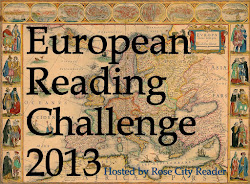
What literature fan would not want to read a book called
Greene on Capri: a Memoir, by Shirley Hazzard?
Graham Greene. The enchanting island of Capri. Written by a
National Book Award winner. All good.
But wait. The title explains both its appeal and its limits. This is Hazzard's memoir, her memories of Greene, focusing only on his time, in his later years, when he owned a house on Capri and regularly spent a month there every spring and autumn. The two met at a Capri restaurant in 1960, when Hazzard interrupted a conversation between Greene and his dining companion to offer the lines of
a poem Greene was trying to remember. She and her husband remained friends with Greene until his death in 1961.
Although their friendship lasted many years, it was mostly limited to a seasonal series of cocktails, dinners, and outings on Capri's rocky shores, followed up with occasional correspondence. There is only so much one can write about that kind of social relationship, mostly distilled to observations of Greene's personality and character, rather than descriptions of particular events. For example, Hazzard examines Greene's disinterest in aesthetic beauty, including the spectacular natural beauty of Capri. In contrast, Greene was a voracious and eager reader:
Promptly generous with time and public praise for new books that please him, he brought enthusiasm to his reading. A fresh book never ceased to be a possibility, a promise. It was, I think, his only consistent form of optimism.
Hazzard's memoir is worthwhile for these observations, but they are not enough to fill a book, even one as short as this. She fills in the spaces with Roman emperor Tiberius' lingering influence over Capri, the island's history as a haven for artists and writers since at least the 1700s, and thumbnail portraits of famous and infamous member's of Capri's 20th Century expatriate population, including
Norman Douglas,
Harold Acton, and
Compton Mackenzie. This is all fascinating stuff, even if the connections to Greene are slim.
What is noticeably missing is a little more information about Hazzard herself, which would go a long way to provide context for her relationship with Greene. By the time she wrote
Greene on Capri (published in 2000), Hazzard had published two volumes of short stories, three non-fiction books, and three novels, including
The Transit of Venus, which won the
National Book Critics Circle Award in 1980. But in this memoir, she does not mention her own writing at all, leaving any reader unfamiliar with her work wondering what she had in common with Graham Greene that would develop into a 30-year friendship and why she had the clout to write about it. Even less is said about her husband
Francis Steegmuller, although he was quite a distinguished man of letters who had won two National Book Awards for his non-fiction.
Greene on Capri is still a wonderful book, even if it is tantalizingly incomplete as any kind of biography of Graham Greene or history of Capri.
OTHER REVIEWS
If you would like your review of this book listed here, please leave a comment with a link and I will add it.
NOTES
It might be a short book, but it inspired a long review! This one counts as one of my choices for the
TBR Challenges I have going and for the
Memorable Memoirs Challenge. It also put me in the mood for the
Graham Greene Challenge.





